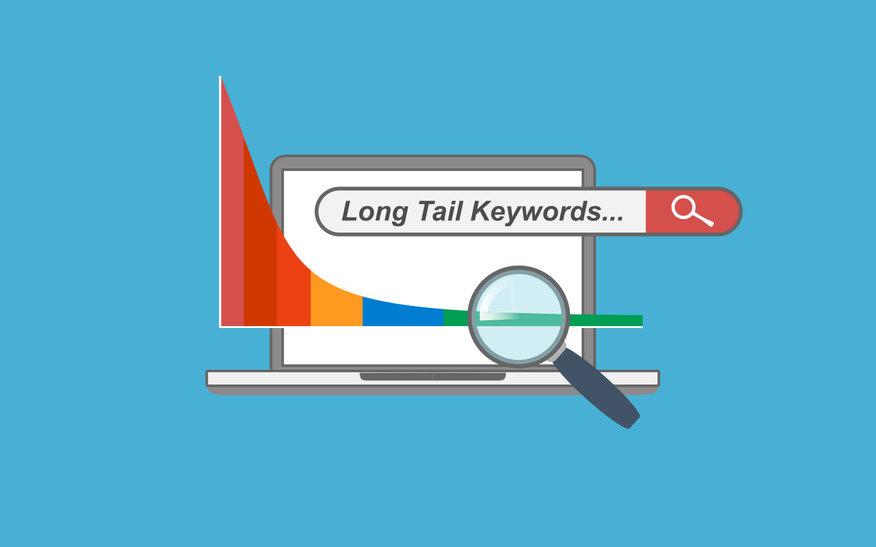Search volume - How significant is it actually?
- Search volume is an important indicator for measuring online marketing success.
- It describes the total number of search queries for a specific keyword within a specific period of time.
- When choosing a keyword, it is important to find the balance in terms of the search volume's scope in order to avoid too much competition or too little traffic.
- Other factors such as the demographics of your target audience, user intent and seasonality also play a crucial role in deciding which keyword, in combination with which search volume, you should choose for your SEO strategy.
- With this article we would like to support you in the development of a suitable SEO strategy and in content and onpage optimisation.
- The goal is to understand which is the appropriate focus keyword for your website and for your target audience.
In this article we cover the following topics:
With this article, we would like to support you in developing a suitable SEO strategy and in content and onpage optimisation. The goal is to understand which is the right focus keyword for your website and for your target group. You want to learn more about the topic? Get in touch with us now!

Search volume - what it actually is
In search engine optimisation (SEO), the term search volume refers to the total number of search queries for a certain keyword within a certain period of time. This can be actual or expected search queries. In the context of keyword analyses, search volume can be used as a metric. The average monthly search volume for a keyword can be used to estimate the amount of traffic that could be generated by ranking for that keyword.
Search volume, i.e. the number of users searching for a specific keyword, is an important metric for measuring the success of any online marketing campaign. Although it may seem like a simple concept, there are actually several key factors that determine search volume, and to get a true measure of search volume, these elements must be carefully considered. Key factors include: user demographics, user intent and seasonality.
User demographics in search engine optimisation
Understanding user demographics is key to understanding what kind of people are searching for a particular keyword. Different age groups have different needs and interests, so their search behaviour will change accordingly. It is also important to consider other demographic factors such as location and income level - this data is often collected by search engines when users submit a search query.
User intent in search engine optimisation
User intent can also significantly influence search volume. For example, if users are searching for a very specific term, such as a product or brand name, they are less likely to click on ads or interact with related content than if they are searching for more general information about that topic. By understanding what users are looking for in their search queries, you can better target your content and advertising strategies to take advantage of higher search volumes. For more on this topic, see the section on User Intent.
Seasonality in search engine optimisation
Finally, it is important to consider seasonality when measuring search volume. For some keywords, search volume increases at certain times of the year due to Christmas shopping or other events. If you are planning an online marketing campaign for a keyword with high seasonality, you should take this into account so that you can adjust your budget and expectations accordingly.
Search volume survey
Search volume is an important factor that determines the success of a website or blog. A website that ranks with a high search volume is more likely to be seen by potential customers or readers, while a website that ranks with a very low search volume is more likely not to be found.
There are several ways to determine the search volume for a particular website. One way is to use a tool like Google Keyword Planner for the Google search engine or Bing Keyword Planner, for the Bing search engine. With this tool, you can enter a keyword or a whole phrase and see how many people search that term each month.
Another way to determine the search volume for a particular website is to use tools such as Sistrix, SEMrush, ahrefs & Co. These tools measure the approximate search volume of keywords and provide an estimate of how much traffic the website can receive as a result.
Finally, you can also use Google Trends to see how the popularity of a particular keyword has changed over time. By knowing the search volume for your website, you can better target your marketing efforts and ensure that your website is found by potential customers or readers.
Vorteile & Nachteile des Suchvolumens für SEO
Search volume is one of the most important factors in search engine optimisation. It is a measure of how many people search for a particular keyword or phrase, and it can be used to assess the competitiveness of a keyword:
-
Advantages: There are some advantages to targeting keywords with high search volume. First, they are usually more popular and therefore generate more traffic. Secondly, high volume keywords can be very valuable from an advertising perspective as they are more likely to lead to clicks and conversions.
-
Disadvantages: The higher the search volume, the more difficult it is to rank for this keyword because there is a lot of competition. It is also usually more expensive, as advertisers are willing to pay more for high search volume keywords. Another disadvantage is that they may not be as targeted as lower volume keywords, which means they may not convert as effectively.
In summary: It is important to find a balance when choosing a search term. If the search volume is too high, there is too much competition and it becomes difficult to appear on the first search results pages. If the search volume is too low, not enough people will become aware of the website. The ideal range is usually around the three-digit range. This ensures that the website is visited sufficiently without there being too much competition.

User intent in content optimisation: What types of user intent (search queries) exist?
There are many different types of user intent in search queries. Roughly speaking, these can be divided into navigation queries, transaction queries, information queries and local queries:
Navigational: Navigation queries are search queries that aim to find a specific company website or brand. The person is looking for information and does not have a specific purchase intention.
Transaktional: Transactional searches are usually about finding specific products or services. Examples are: "buy sneakers" or "rain jacket for men". There is usually an intention to buy behind it.
Informational: Information searches are queries that seek to learn more about a specific topic or issue. These include questions such as "How do you cook salmon?" or "What is the impact of climate change?".
Local: Local searches usually include geographically oriented terms, such as city names, company names and addresses. These types of searches help users find businesses and services that are close to their current location.
Ultimately, understanding user intent is critical to creating effective SEO strategies and delivering relevant content that meets the needs of your target audience.
The importance of user intent for SEO
User intent is an important factor to consider in any SEO strategy. Simply put, user intent refers to the reason why someone is performing a search. For example, a user searching for "buy shoes" clearly wants to buy something, while a user searching for "shoe shop" may be looking for information on where to buy shoes. The respective search volumes can vary greatly - even though the keyword with the lower search volume may be the more important one. If you want to understand the user's intent, you can target your SEO efforts more effectively:
By tailoring your content and keywords to the specific needs of your target audience, you can improve your chances of ranking highly in the SERPS and attract visitors who are more likely to convert. In an increasingly competitive environment, meeting the needs of your users is critical to success. Keep this in mind when developing your SEO strategy and you'll be well on your way to achieving your goals.
Conclusion: search volume vs. user intent
Ultimately, it can be seen that optimizing keywords for user intent is becoming increasingly important these days, more important than optimizing purely for search volume. This is because, on the one hand, there is more and more competition and, on the other hand, the needs of the target audience are becoming more and more in focus. Optimizing for user intent is a much more effective approach is than simply trying to rank high on search engine results pages for frequently searched keywords. So if you always have your customers' intent in mind, you'll create valuable and relevant content. This increases the likelihood that your users will click on your site and not on your competitors'. This way you can not only improve your ranking in the SERPs, but also generate more leads and conversions.

FAQs zum Thema Suchvolumen & Co.
What is a good search volume?
Determining the right search volume for keywords is not that easy. A high search volume risks having too much competition, but if it's too low, the traffic potential is equally low. Do research to understand what user intent your target audience has and find keywords that fit. A search volume in the three-digit range is usually a good way to go.
What are generic keywords?
Generic keywords are general keywords, such as "pizza", "car" or "shoes". However, it is not clear from these terms what the user's intention is. Does he want to bake a pizza and is looking for a recipe or is he looking for a restaurant in his area? You can generate traffic with these keywords, but it is often not adapted to your target group and therefore not qualified.
What are long-tail keywords?
Long-tail keywords are search terms that are relatively specific and usually consist of three or more words. Common examples of long-tail keywords are phrases like "buy red shoes online" or "best recipe for chocolate cupcakes".
What is User Intent?
User Intent means "user intention". It provides information about the intention with which a person makes a search query. Does the person only want information on a topic, or does he search with an intention to buy.
Why is user intent important for SEO?
User intent is a critical factor in search engine optimization. If you understand what users are looking for when they search for specific terms, you can ensure that your content is tailored to those needs.
Image sources:
- varijanta/123rf.com
- artemisdian/123rf.com
- artursz/123rf.com
About the author: Louisa Anger

Louisa specialises in writing search engine optimised texts and articles in the online marketing field. She researches and writes SEO-optimised content for various companies from different industries. At SEO-Suchhund, Louisa is the person responsible for the topic of SEO content.
